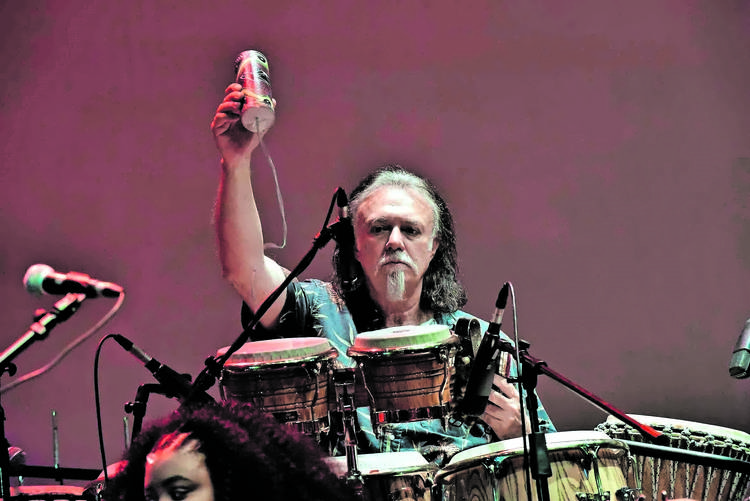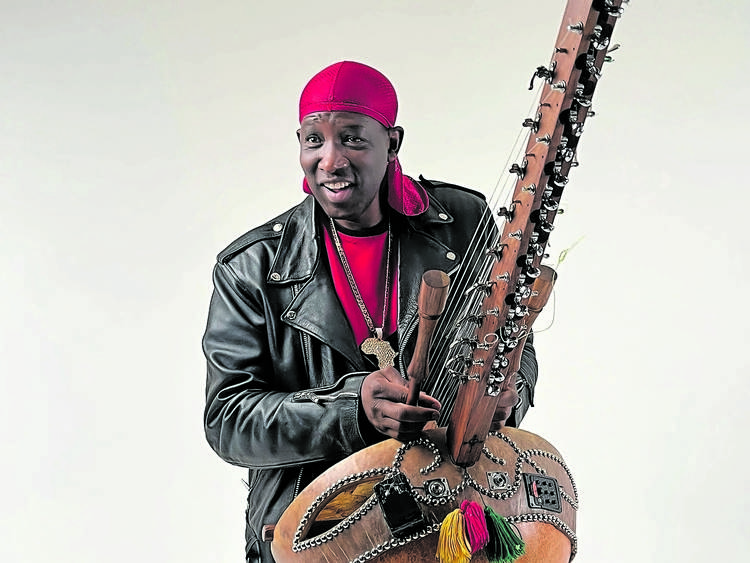In the mix: Mahotella Queens are set to perform in this year’s Womad festival. (Photo by C Brandon/Redferns via Getty Images)
The term “World Music” historically masked a cultural discourse that centred the music of the hegemonic West, with sounds from everywhere else, however historic, risk-taking, diverse and beautiful, crammed into that one dusty little marketing suitcase.
Despite the similarity of terms, however, that’s precisely the opposite of what musician Peter Gabriel (former leader of Genesis) and a bunch of like-minded creatives intended when they developed the “World of Music and Dance (Womad)” concept and held their first Womad festival in 1982.
Gabriel’s aim was to show how extensive the world of music was outside Western marketing categories.
Over the 40 years since, the Womad idea has changed with the world and, says Dan Chiorboli, director of Womad South Africa, current incarnations “wouldn’t be in their present form without the experience of Covid”.
Chiorboli, who’s also a percussionist and artists’ manager, is talking specifically about the 2023 incarnation of Womad South Africa, which runs from 23 September to 7 October, presenting a range of events in and around Cape Town, Johannesburg, Middelburg, Mapungubwe and at the !Khwa ttu San Heritage festival in Yzerfontein.
This Womad includes not only music but thematically linked theatre, literary, art and craft-focused events.
Gabriel, says Chiorboli, has constantly insisted that Womad “can’t just be a one-night stand”. Seeing the devastation the pandemic wrought on live music intensified that concern. Single, centralised, big-ticket mega-festivals — even if held on open-air fields, as Womad often has been — inevitably limit access, cross-fertilisation between ideas and genres, and work creation.
By contrast, Chiorboli says, the clusters of smaller events that this year’s Womad will present have the potential to maximise all three.
Womad festivals are now two-thirds music, with other arts genres and activities making up the rest.
 Dan Chiorboli, the director for Womad SA.
Dan Chiorboli, the director for Womad SA.
There’s a budget to document the events and the interactions they seed and, estimates Chiorboli, the nine days will create the opportunity “for 320 jobs — part of my mandate is cultural work creation”.
In Cape Town, Heritage weekend will see three days of free events at the V&A Waterfront plus a constellation of workshops from international and local artists across suburbs including Grassy Park, Wynberg, Noordhoek and Langa.
In Johannesburg, from 29 September to 1 October, the various Market Theatre and Market Precinct venues host workshops, performances and exhibitions.
One focus will be Afro-Hispanic connections, with music from Colombia and an exploration of the African roots of flamenco; another will be pan-African, with artists from Senegal, Ethiopia and Guinea; a third, in the closing “Legends” concert, will be South Africa itself, with the African Jazz Pioneers, the Mahotella Queens and Vusi Mahlasela alongside the Colombian ensemble and indigenous Australian singer/songwriter Shellie Morris, a woman of Yanyuwa, Gudanji, Marra and Garrwa heritage.
In Mpumalanga, the Middelburg Sydney Chuma Hall will host a concert led by Nothembi Mkhwebane.
At the San heritage festival, indigenous artists from Australia, Bolivia, Guinea and Ethiopia will meet their counterparts from South Africa, Botswana and Namibia. In Mapungubwe, Limpopo-based musicians will share an open-air stage with Guinean kora player N’Faly Kouyate in the dry riverbed where South Africa, Botswana and Zimbabwe meet.
With far more individual events than this summary can list, the festival website (https://womadsa.co.za/) provides details.
Chiorboli sees the Market Theatre events as forming one aspect of a “cultural catalyst for the Joburg inner city. I remember the era of the Yard of Ale and the Flea Market, when that part of town was so alive over the weekends,” he says.
“A vote of confidence from events like Womad can help bring that vibrancy alive again, and because the precinct will be part of what we do, it’s accessible to anybody who lives there and might be walking past.”
He’s passionate about using the festival to identify South African talent for the international Womad festival circuit.
“I look at other programmes and ask myself why there are so often more artists from other countries than from here. I wonder whether we’ve lost our soul, and stopped being in tune with our heritage?”
Chiorboli isn’t just talking about what might be classified as “folk” or “traditional” artists as heritage. He hears that soul just as much in more modern urban forms such as jazz and mbaqanga, and currently manages the African Jazz Pioneers.
In the 1980s and 1990s, the ensemble was based at Dorkay House and managed by the late Queeneth Ndaba. Then, it brought together veterans from the very earliest days of African jazz, led by the late saxophonist Ntemi Piliso.
Time took its toll. Today’s Pioneers are somewhat younger, but the re-formed group still represents a community of musicians who grew up on South Africa’s historic jazz scenes and followed their elders in keeping a distinctive style of music alive.
Chiorboli hopes the Sunday Legacy Concert at the Market Theatre will introduce new listeners to that sound. Last year, he brought the Pioneers into the studio for a new recording — a first-time collaboration with equally historic vocal group the Mahotella Queens.
 Rising star N’Faly Kouyate is also billed to play at Womad.
Rising star N’Faly Kouyate is also billed to play at Womad.
The Queens are still led on stage by the redoubtable Hilda Tloubatla, now 82; her two younger co-vocalists are Amanda Nkosi and Nonku Maseko. The album, Hello, Hello, (which also has a guest spot from Grammy-winning flautist Wouter Kellerman) was released in March.
The album mixes mqashiyo favourites from the Queens (Melodi Y’alla; Kazet; Town Hall), and Pioneers compositions perched on the cusp where old-style marabi jazz was turning into something more modern (Yeka Yeka; Apple Tart) plus more recent songs such as Kellerman’s feature, Peter Gabriel’s Biko. Some tracks are instrumental; some just delicious female close-harmony.
Sensibly, nobody tries to sound like the irreplaceable Mahlatini; Sello Manyaka’s male vocals are sweet, neat and all his own. Nobody could sound like the late Piliso even if they tried: a unique saxophonist, sometimes the Pioneers’ straightforward format disguised how edgy and technical his solos were.
Here, the whole horn line plays tightly and capably and everybody taking a solo does it justice.
As the two groups engage on their creative common ground — both musics are grounded in the conversations of call and response — guitarist Davidson Mulaudzi often forms an intelligent genre-spanning bridge between the Queens’ pop and the Pioneers’ jazz; he’s a find.
Pure sonic magic happens when the fizz of the Queens’ voices bubbles up through the disciplined solidity of the horns, particularly any time Tloubatla’s voice is out front.
These aren’t the only festival artists with new releases out in advance of Womad. Kouyate — perhaps better known as the kora player in the Afro-Celt Sound System — has just released a single, Mandela, heralding an album to come.
Kouyate’s virtuosity on kora is widely acknowledged, but he also has a rich, melodious singing voice.
The video for the song, filmed in South Africa, juxtaposes images of the late statesman with music and, strikingly, knits the rhythms of the tune into the percussive strike of miners’ hammers. That makes it an anthem to the pan-Africanism of workers and revolutionaries, rather than that of state banquets.